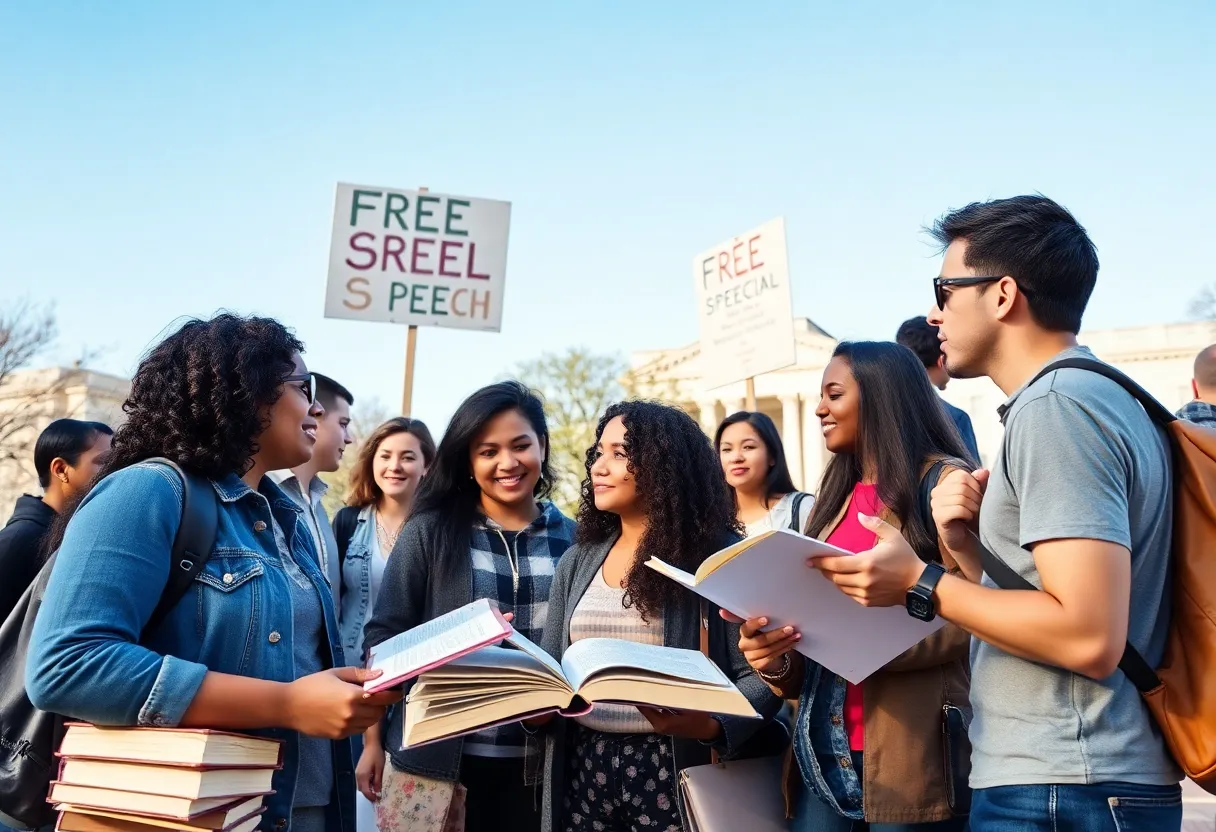News Summary
An evaluation by The Foundation for Individual Rights and Expression revealed that many Boston-area universities, including Harvard and Northeastern, received failing marks for their free speech policies. Alarming trends indicate a significant number of students now believe in silencing speakers, reflecting a concerning climate for free expression. The report arrives amid heightened scrutiny following the death of conservative activist Charlie Kirk, sparking debates over political tolerance and the limits of free speech on campuses. This investigation highlights the need for universities to re-evaluate their commitment to fostering open dialogue.
BOSTON—Many Boston-area universities, including Northeastern University and Harvard University, have received failing grades for their climate surrounding free speech, according to an evaluation conducted by The Foundation for Individual Rights and Expression (FIRE). This report highlighted a growing concern over the attitude of students toward free speech rights, particularly in light of recent events surrounding the death of conservative activist Charlie Kirk, who was killed at a campus event in Utah just a day after the report’s publication.
The evaluation indicated that a record-high percentage of students believe it is acceptable to shout down a speaker, block entry to a campus speech, or even use violence to stop a campus event from occurring. Out of 257 surveyed schools, 166 received failing scores, including Wellesley College and Boston University, while the Massachusetts Institute of Technology (MIT) achieved a grade of D minus.
Sean Stevens, the chief research advisor at FIRE, pointed to alarming trends illustrating that political tolerance among students is at its lowest levels. The report came with a stark warning, stating that the findings “reveal a bleak picture” of students’ attitudes toward free speech on campus and “should continue to raise alarm.”
While Harvard University improved its score compared to previous years, it previously ranked near the bottom in terms of free speech protections. One significant event at Harvard included the university’s president continuing a speech after being interrupted by an animal rights activist who sprayed him with glitter.
In light of Kirk’s death, Stevens suggested that students may reconsider their views on free speech tactics, possibly reducing their willingness to block controversial speakers. FIRE’s rankings are based on student survey responses, evaluations of written policies on free speech, and documentation of individual free speech controversies.
Despite the critical findings, fears about the methodology used by FIRE emerged, with some questioning the accuracy of their database regarding free speech incidents. According to the report, 43% of students felt it was “somewhat clear” that their college administration protects free speech, while 36% admitted feeling “somewhat uncomfortable” publicly disagreeing with professors on controversial topics such as the Israel-Hamas conflict, abortion, and transgender rights, particularly in light of the upcoming presidential election.
Claremont McKenna College garnered the highest ranking in the evaluation with a grade of B minus, while Barnard College received the lowest score. Northeastern University was positioned fifth-lowest among surveyed institutions. A master’s student at Northeastern expressed concerns over the ambiguous definition of what constitutes “offensive” speech and called for greater transparency from the university.
Philip Wohltorf, associated with Boston University College Republicans, noted a prevailing student culture that is often unwelcoming to conservative viewpoints, despite university administration advocating for open dialogue.
The report’s release coincided with intensified discussions about limitations on free speech and increased scrutiny on educators in response to comments made regarding Kirk’s assassination. In Massachusetts, at least six teachers faced disciplinary leave due to negative or celebratory posts on social media, with investigations determining the necessity of further action.
This investigation reflects a broader concern about maintaining student safety and institutional values while balancing employee constitutional rights to free expression. Advocates of the First Amendment caution against reactive measures that might unnecessarily curtail free speech rights, as the risk of overreaction can itself stifle expression.
The American Civil Liberties Union (ACLU) reiterated the importance of protecting free expression and open debate, particularly in times of crisis. The scrutiny of educator comments following Kirk’s assassination raises questions about a potential chilling effect on free speech within academic environments, which has become a significant topic of discussion among students and faculty alike.
Deeper Dive: News & Info About This Topic
HERE Resources
Meta Abandons Fact-Checking Program Amid Political Change
Additional Resources
- Boston Globe: Boston Universities Get an Failing Grade in Free Speech Policies
- New York Times: Trump Trial and Free Speech in Student Crackdowns
- Boston.com: In Battles Over Free Speech, Comedians Are Often Center Stage
- Wikipedia: Free Speech
- Encyclopedia Britannica: Freedom of Speech
Author: STAFF HERE BOSTON WRITER
The BOSTON STAFF WRITER represents the experienced team at HEREBoston.com, your go-to source for actionable local news and information in Boston, Suffolk County, and beyond. Specializing in "news you can use," we cover essential topics like product reviews for personal and business needs, local business directories, politics, real estate trends, neighborhood insights, and state news affecting the area—with deep expertise drawn from years of dedicated reporting and strong community input, including local press releases and business updates. We deliver top reporting on high-value events such as Boston Marathon, Head of the Charles Regatta, and Boston Harborfest. Our coverage extends to key organizations like the Greater Boston Chamber of Commerce and Associated Industries of Massachusetts, plus leading businesses in finance, biotech, and insurance that power the local economy such as Fidelity Investments, Biogen, and Liberty Mutual Insurance. As part of the broader HERE network, we provide comprehensive, credible insights into Massachusetts's dynamic landscape.





